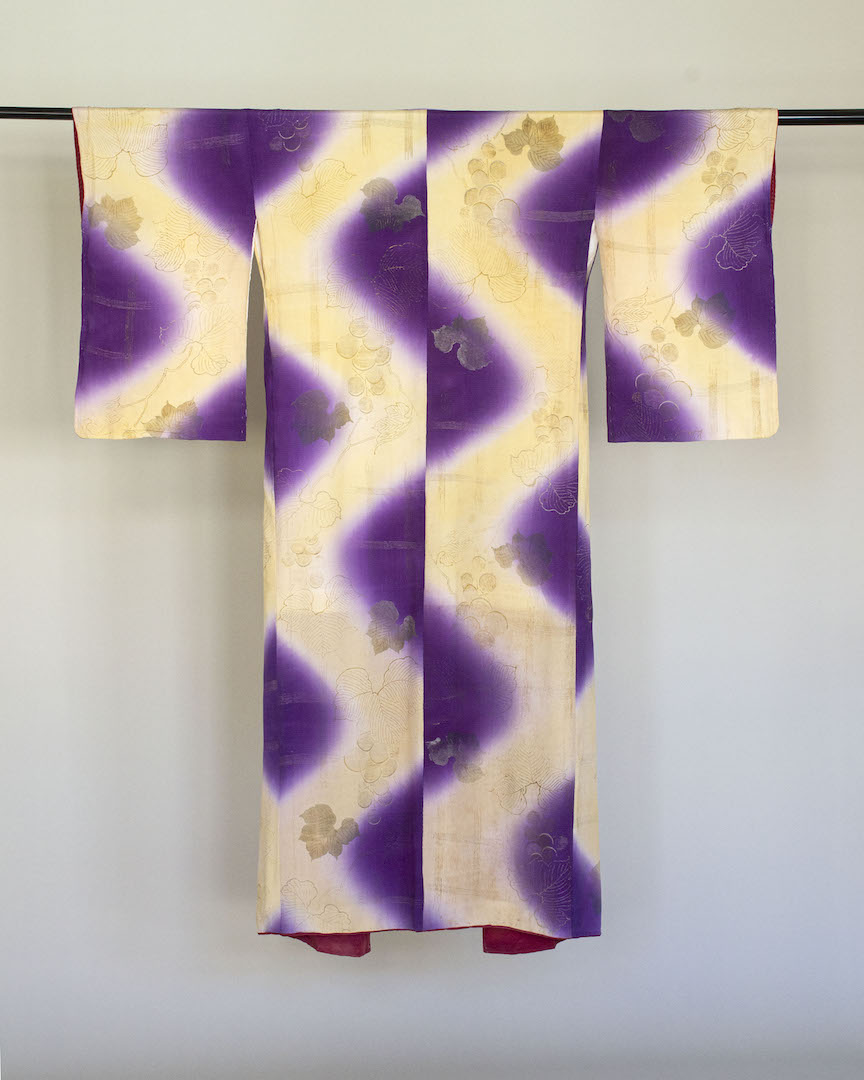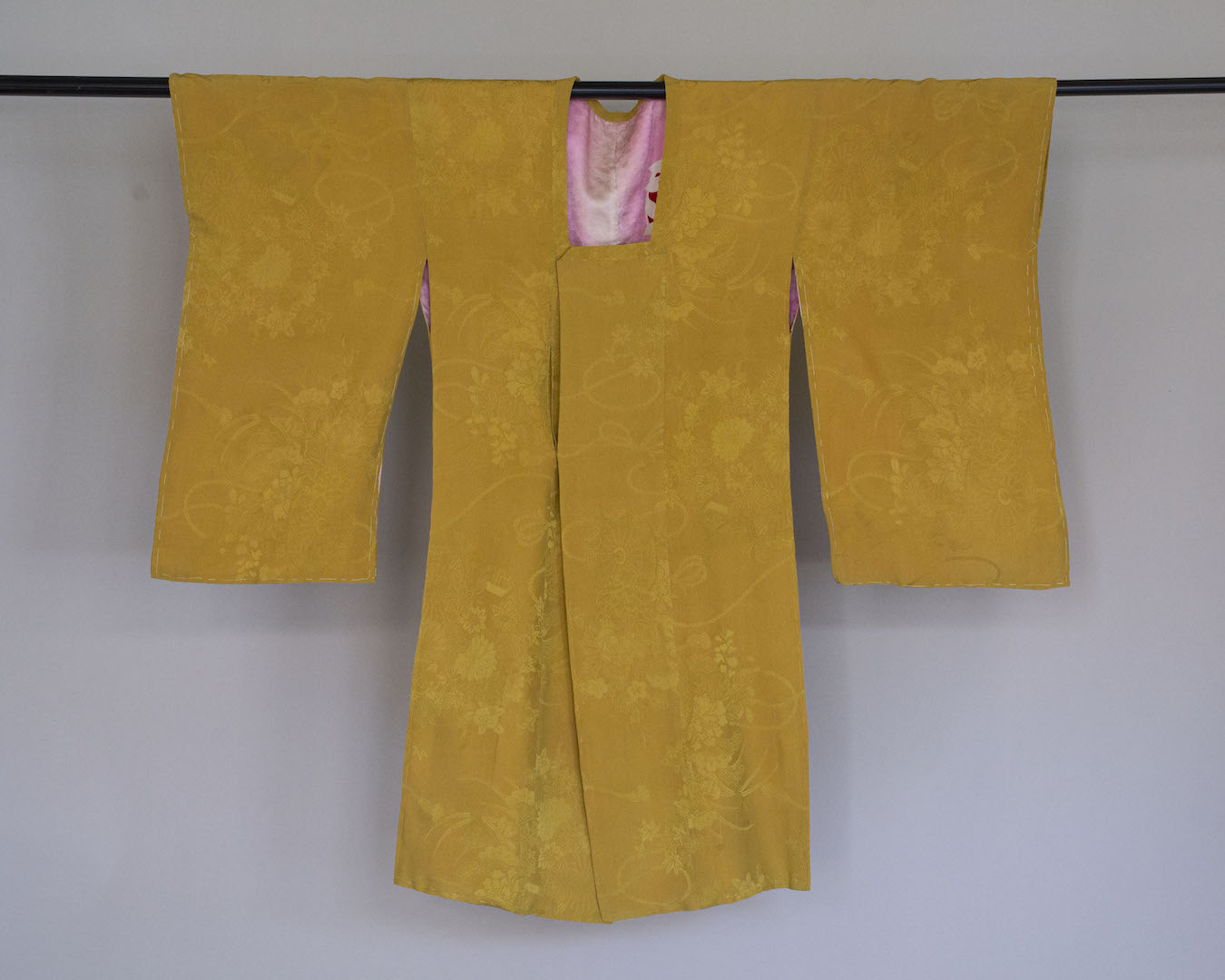We did it! Thanks to the help of many, very kind people and groups, we have raised in a short period of time the money needed to acquire the Japanese garments ollection that was recently offered to the TRC. This was done via crowdfunding (Voordekunst), as well as public and private donations!
 Inside of a man's haori (jacket), turned inside out, showing the decorative lining. Japan, 20th century.
Inside of a man's haori (jacket), turned inside out, showing the decorative lining. Japan, 20th century.
Not only did we raise the money, but the garments have already been sent to Leiden and will start appearing on the TRC Collection database next week! The owner, Marianne Kooimans, had faith in the TRC and its supporters and sent the garments earlier than planned.. The pieces date from the early to mid-20th century and include both men and women’s garments in a variety of very different forms and techniques.
 Women's kimono, with a woven and dyed pattern. Japan, 20th century.And there are some amazing items, colour combinations, patterns and, from my perspective, hidden gems. I have been particularly struck by the colourful shibori (tie-dye) jackets for women and the linings of some of the men’s jackets – thanks to various Japanese laws, men wore kimono and jackets that were plain on the outside, but the linings included patterns and colours. There are some lovely and surprising designs.
Women's kimono, with a woven and dyed pattern. Japan, 20th century.And there are some amazing items, colour combinations, patterns and, from my perspective, hidden gems. I have been particularly struck by the colourful shibori (tie-dye) jackets for women and the linings of some of the men’s jackets – thanks to various Japanese laws, men wore kimono and jackets that were plain on the outside, but the linings included patterns and colours. There are some lovely and surprising designs.
All in all a very satisfactory moment! We have achieved our first aim of making a broad based collection of world textile and dress and now we are adding depth by looking at specific aspects, in this case specific forms and techniques associated with Japanese attire.
We are planning, for example, on having an exhibition about the garments and the different techniques from shibori to hand painted forms, not to mention the dyed, printed, woven and embroidered examples, later in the year. We are also working on the idea of a number of online ‘articles’, highlighting various aspects of this newly acquired collection, such as techniques, designs, colour combinations and flowers.
 Woman's michiyuki (knee-length outdoor coat), with a damask floral pattern. Japan, 20th century.In addition, we will be talking with various groups of textile and fashion students about these garments and to see how they can be inspired by these pieces in the TRC Collection in general, but these new acquisitions in particular (the first group visited us last Wednesday!).
Woman's michiyuki (knee-length outdoor coat), with a damask floral pattern. Japan, 20th century.In addition, we will be talking with various groups of textile and fashion students about these garments and to see how they can be inspired by these pieces in the TRC Collection in general, but these new acquisitions in particular (the first group visited us last Wednesday!).
Thank you!
Support and help was given, among others, by the Leiden Council, the Japanese Museum SieboldHuis (Leiden), Selvedge Magazine (London), and the Dutch magazine, Merkwaardig. The assistance by the crowdfunding organisation Voordekunst was greatly appreciated. A lot of work on behalf of the TRC was carried out by Maria Linkogle. Many, many thanks to all those people and groups who helped, it is appreciated. Thanks also to Marianne Kooimans, the maker of the collection, for all her extra help, photographs, and general advice.










